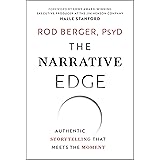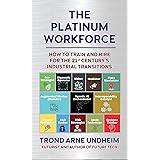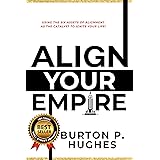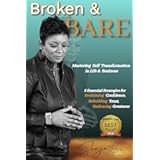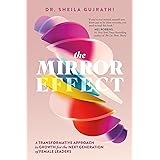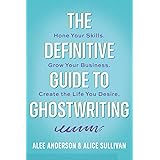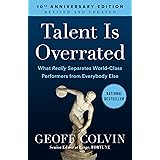Navigating the complex landscape of career choices can often feel overwhelming, leading to significant stress and uncertainty for many. The pursuit of a truly fulfilling profession, a
career you genuinely love
, isn’t always straightforward. It often brings forth anxieties about whether one is on the right path or if their current role genuinely provides satisfaction.Fortunately, insights from behavioral science offer a roadmap. As discussed in the accompanying video featuring Professor Grace Lordan, an expert in behavioral science, there are several evidence-based techniques designed to guide you toward a career that aligns with your passions and values. This article expands on these powerful strategies, offering deeper context and practical applications to help you transform career anxiety into actionable steps toward professional contentment.
Beyond the Job Title: Focusing on Daily Tasks
A common pitfall in career planning is an overemphasis on job titles. Many aspiring professionals, perhaps influenced by societal perceptions or media portrayals, fixate on labels like “investment banker,” “doctor,” or “trader.” While these titles carry prestige, they often overshadow the crucial reality of day-to-day responsibilities.
Professor Lordan highlights this by urging individuals to visualize the granular tasks involved. For example, a lawyer’s life on TV might appear glamorous, but the daily reality often involves extensive research, long hours of document review, and client management, sometimes stretching from 6 AM to 8 PM. Understanding these “pixels” of daily life, as conceptualized by Tim Urban’s Pixel Theory, is vital. Your happiness and success in any career largely hinge on your enjoyment of these individual tasks, not just the grand title.
Envisioning Your Future Self: The Me+ Visualization
To pinpoint a
career you genuinely love
, it’s essential to define an aspirational future self, or “Me+.” This isn’t just about dreaming; it’s a structured visualization exercise that helps articulate your ideal professional life. Start by thinking broadly about your goals for this enhanced version of yourself.Beyond a job title, consider the industry, the type of company (or if it’s your own venture), and the key characteristics of that work environment. Crucially, then drill down into the specific tasks and responsibilities your “Me+” would genuinely enjoy. These might include roles that involve disrupting conventional thinking, providing consultation, coaching others, solving complex problems, continuous learning, teaching, or creating art. This two-tiered approach ensures both a strategic overview and a tangible understanding of what makes you tick.
Real-Time Reflection: Auditing Your Time for Purpose and Fun
Once you have a clearer picture of your “Me+,” the next step involves evaluating your present activities. Auditing your time is a simple yet profoundly effective strategy. It moves beyond merely tracking what you do to assessing how each activity makes you feel.
A practical approach involves reviewing your calendar or daily log and assigning a “plus” or “minus” rating to each item. A “double plus” signifies activities moving you directly toward your “Me+” goals, while a “minus minus” indicates tasks actively draining your energy or pulling you away from your desired path. Identifying and progressively eliminating these “time sinkers” allows for a deliberate shift towards more purposeful and enjoyable engagements, building momentum towards a more fulfilling career.
The Power of Compounding: 13 Minutes a Day for Skill Development
The journey to a fulfilling career is not merely about identifying what you love but also about acquiring the necessary skills. Professor Lordan emphasizes the principle of compounding, much like financial investments grow over time. Committing just 90 minutes a week, which translates to a highly manageable 13 minutes a day, can yield significant long-term returns in skill development.
This daily investment aligns with Cal Newport’s Career Capital Theory, which posits that a
career you genuinely love
must be earned by developing rare and valuable skills. Whether it’s learning to code, honing a creative craft, or deepening industry knowledge, these small, consistent efforts build “career capital.” This capital, accumulated diligently over time, empowers you to command more desirable roles and opportunities that genuinely excite you.Rethinking Education: Alternative Paths to Career Growth
While traditional higher education holds significant value, it isn’t always the sole or best path for career evolution, especially for those seeking a change later in their professional lives. Professor Lordan, a university professor herself, surprisingly advises against immediately committing to expensive four-year degrees or master’s programs if you’re uncertain about your direction. The modern landscape offers an abundance of affordable or free resources.
The internet provides unprecedented access to learning through platforms offering online courses, bootcamps, and certifications. Libraries, mentorship programs, and industry events also present invaluable opportunities for skill acquisition and networking without the substantial time and financial commitment of a traditional degree. For instance, the evolving job market often prioritizes practical experience and demonstrated skills over a specific academic credential, making alternative learning paths increasingly viable for cultivating a
career you genuinely love
.Embracing Adaptability: The Value of U-Turns
The path to a fulfilling career is rarely linear. A significant psychological barrier often arises from our innate aversion to changing our minds, despite the fact that our preferences and values evolve. Psychologist Dan Gilbert’s research on “The End of History Illusion” demonstrates that at every age, from 18 to 68, people vastly underestimate how much they will change over the next decade. His studies, involving thousands of participants, consistently show this tendency to believe we’ve reached our final form.
Grace Lordan advocates for embracing “U-turns” as a sign of intelligent adaptation rather than inconsistency. As observed during critical periods like the COVID-19 pandemic, leaders who were able to deliberately change strategies based on new data proved more effective. In your career, a U-turn is not a failure but a data-driven course correction, an essential part of navigating uncertainty and continuously aligning your work with your evolving self to discover a
career you genuinely love
.Strategic Exploration: Adopting the Grid-Search Mindset
When the precise vision of your dream career remains elusive, a “grid-search mindset” offers a practical approach. This technique involves deliberately exploring various activities you suspect you might enjoy, gathering data on your experiences, and then adjusting your course. It’s an iterative process of experimentation and reflection.
For example, someone might explore teaching, creative endeavors, and entrepreneurship. By taking small, deliberate steps in each area—like teaching a workshop, starting a small creative project, or engaging in a side hustle—they gather real-world data about what genuinely resonates. This retrospective “connecting the dots,” as famously described by Steve Jobs, often reveals a cohesive path that wasn’t apparent looking forward. The grid-search mindset encourages proactive engagement and continuous learning, ultimately guiding you toward a
career you genuinely love
through informed exploration and adaptation.

